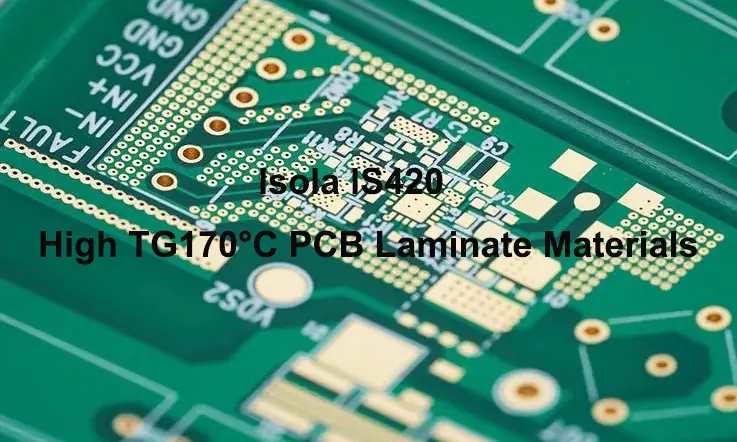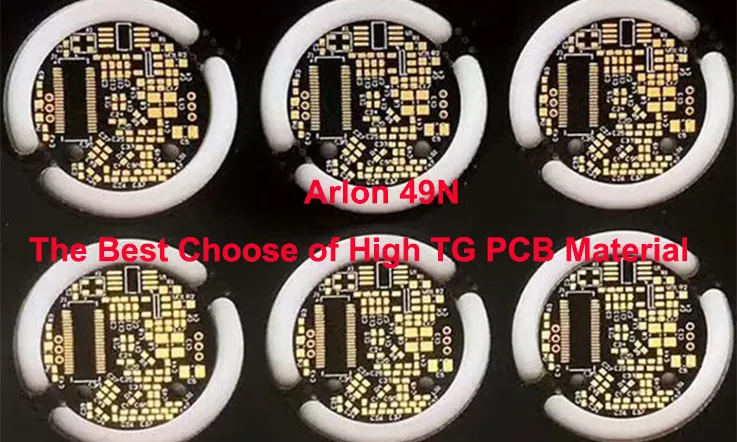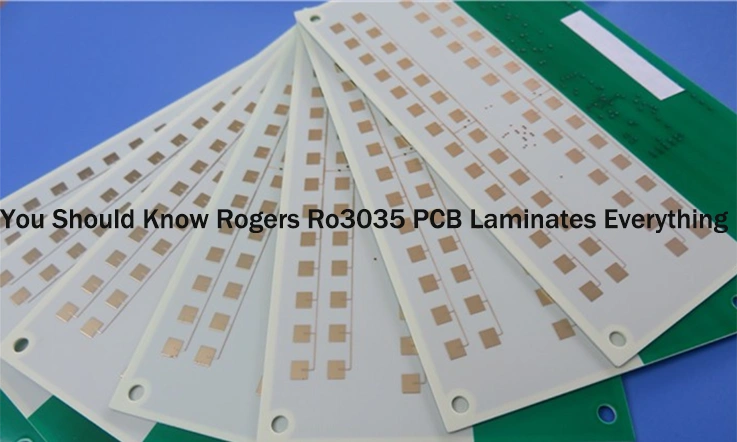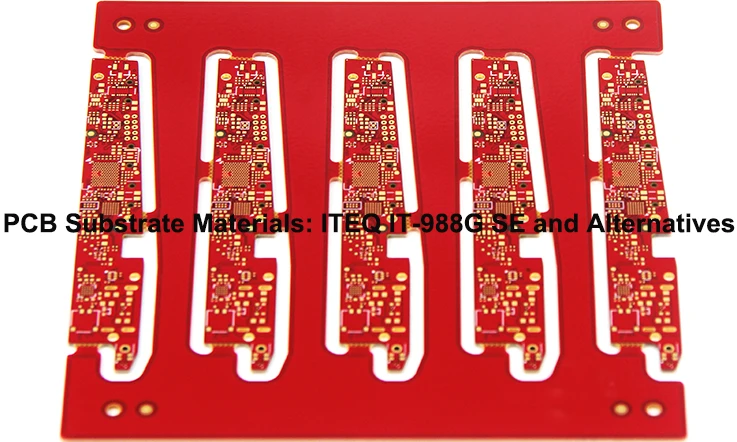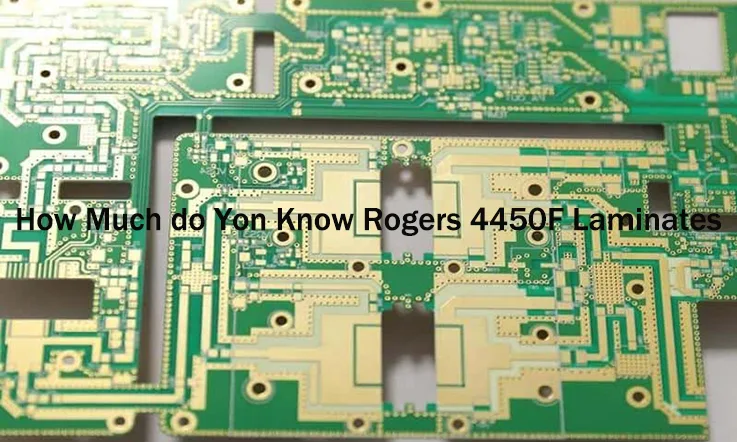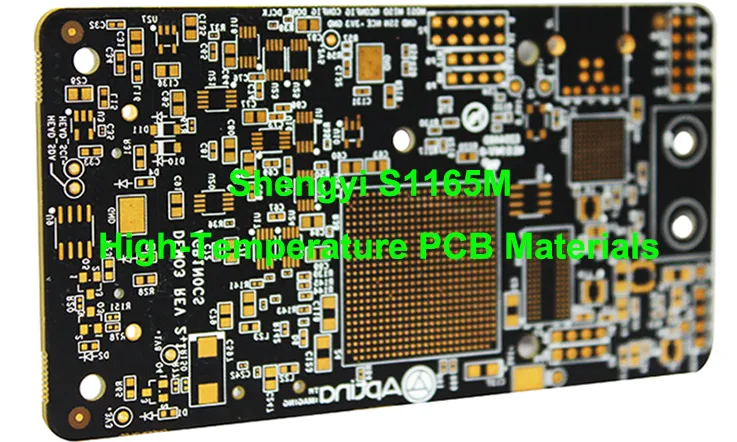
Shengyi S1165M is a high-performance PCB material that offers exceptional thermal stability, excellent electrical properties, and mechanical strength. This article explores the key features and advantages of Shengyi S1165M, along with its limitations. It also highlights the crucial factors to consider when choosing this material for PCB designing and manufacturing.
Definition of Shengyi S1165M High TG PCB Materials
Shengyi S1165M is a type of high TG (glass transition temperature) PCB (printed circuit board) material manufactured by Shengyi Technology Co., Ltd. It is designed to provide excellent thermal stability and mechanical properties for use in high-temperature applications.
The term “high TG” refers to the glass transition temperature of the material. The glass transition temperature is the temperature at which the material transitions from a rigid, glassy state to a softer, rubbery state. High TG materials have a higher glass transition temperature, typically above 150°C, which allows them to withstand elevated temperatures without losing their mechanical integrity.
Shengyi S1165M is specifically formulated to have a high TG, making it suitable for applications that require reliable performance at elevated temperatures. It offers several key features and benefits, including:
1. High thermal stability: The material is designed to maintain its dimensional stability and mechanical properties even at high temperatures, reducing the risk of warping or delamination.
2. Excellent electrical performance: S1165M provides good electrical insulation properties, allowing for reliable signal transmission and minimizing the risk of electrical failures.
3. Good mechanical strength: The material offers high mechanical strength and resistance to impact, ensuring the integrity of the PCB even under harsh conditions.
4. Low water absorption: S1165M has low water absorption characteristics, which helps to maintain its electrical and mechanical properties in humid environments.
5. Compatibility with lead-free soldering: The material is compatible with lead-free soldering processes, which are commonly used in modern electronics manufacturing.
Shengyi S1165M high TG PCB material is commonly used in applications such as automotive electronics, industrial equipment, telecommunications, and aerospace, where high-temperature resistance and reliability are crucial.
Features of Shengyi S1165M PCB Materials
Shengyi S1165M PCB material offers a range of notable features that make it a preferred choice in the field of printed circuit board engineering:
1.Lead-free compatibility:
Shengyi S1165M is designed to be compatible with lead-free soldering processes, aligning with the industry’s shift towards environmentally friendly and RoHS-compliant manufacturing practices.
2.High Tg and halogen-free:
The material boasts a high glass transition temperature (Tg) of 170°C (measured using Differential Scanning Calorimetry), ensuring excellent thermal stability and reliability even under elevated temperature conditions. Additionally, it is halogen-free, meeting stringent environmental regulations.
3.UV blocking/AOI compatibility:
Shengyi S1165M features UV blocking properties, making it suitable for applications that involve automated optical inspection (AOI) processes. This ensures accurate and efficient inspection of the PCB, enhancing quality control during production.
4.Lower Z-axis coefficient of thermal expansion (CTE):
The material exhibits a lower CTE in the Z-axis direction, which refers to its dimensional stability and resistance to expansion or contraction caused by temperature fluctuations. This characteristic minimizes the risk of warping, delamination, or stress-related failures in the PCB, contributing to its overall reliability.
Drawback and Limitations of Shengyi S1165M
While Shengyi S1165M PCB laminate has several advantages, it also has some drawbacks and limitations that are important to consider:
1. Cost: Shengyi S1165M is generally more expensive compared to standard PCB materials. The higher cost can impact the overall manufacturing budget, especially for large-scale production.
2. Processing limitations: Shengyi S1165M may have specific processing requirements and limitations. For example, it may require specialized equipment or techniques for drilling, etching, and soldering. Manufacturers need to ensure that their production processes are compatible with this material.
3. Fragility: Shengyi S1165M may be more brittle compared to other PCB materials. It can be prone to cracking or fracturing if subjected to excessive mechanical stress or rough handling during manufacturing or assembly.
4. Moisture absorption: Although Shengyi S1165M has low water absorption compared to some other materials, it is still susceptible to moisture absorption over time. This can lead to changes in electrical properties and dimensional stability, potentially affecting the performance and reliability of the PCB.
5. Limited availability: Shengyi S1165M may not be as widely available as some other PCB materials. This can limit the options for sourcing and may require additional lead time or higher costs for procurement.
5.Specific application requirements: While Shengyi S1165M is suitable for many applications, there may be specific requirements or niche applications where other materials may be more suitable. It is important to carefully evaluate the specific needs of the application and consider alternative materials if necessary.
Key Factor when Choose Shengyi S1165M in PCB Designing and Manufacturing
When choosing Shengyi S1165M PCB laminate for designing and manufacturing, several key factors should be considered:
1. High-temperature performance: Shengyi S1165M is known for its high glass transition temperature (Tg) of over 150°C and high thermal stability. This makes it suitable for applications that require elevated temperature operation or are subjected to high-temperature environments. Consider if your PCB design will be exposed to high temperatures during operation or assembly, and if so, Shengyi S1165M can be a good choice.
2. Reliability and durability: Shengyi S1165M offers good mechanical strength and stability, which are crucial for long-term reliability and durability of the PCB. Evaluate the environmental conditions and mechanical stress the PCB will be subjected to, such as vibrations, thermal cycling, or flexing, and determine if Shengyi S1165M can provide the required level of reliability and durability.
3. Electrical performance: Shengyi S1165M has excellent electrical properties, including low dielectric loss and good signal integrity. Consider the specific electrical requirements of your PCB design, such as high-frequency applications or impedance control, and determine if Shengyi S1165M can meet those requirements.
4. Compatibility with lead-free soldering: Shengyi S1165M is compatible with lead-free soldering processes, which is important for complying with environmental regulations and industry standards. If your PCB design requires lead-free soldering, Shengyi S1165M can be a suitable choice.
5. Application-specific requirements: Consider the specific application and industry requirements for your PCB design. Shengyi S1165M is commonly used in various industries such as telecommunications, consumer electronics, automotive, and industrial applications. Evaluate if it meets the specific needs of your application, such as high-frequency performance, thermal management, or size constraints.
6. Manufacturing capabilities and processes: Ensure that your PCB manufacturer has experience working with Shengyi S1165M and can meet the processing requirements of the material. Consider factors such as compatibility with drilling, etching, soldering, and other manufacturing processes to ensure a smooth production process.
By considering these key factors, you can determine if Shengyi S1165M is the right choice for your PCB design and manufacturing needs, taking into account its strengths and how well it aligns with your specific requirements.
Which Types Circuit Board Use Shengyi S1165M PCB Laminate?
Shengyi S1165M PCB laminate is commonly used in various types of circuit boards, including:
1. Multilayer PCBs: Shengyi S1165M is suitable for manufacturing multilayer PCBs, which consist of multiple layers of copper traces and insulating material. These PCBs are used in a wide range of electronic devices, including computers, telecommunications equipment, consumer electronics, and industrial applications.
2. High-frequency PCBs: Shengyi S1165M is often employed in high-frequency PCBs that are designed to handle signals at higher frequencies, such as in wireless communication systems, radar systems, and microwave devices. The material’s high Tg and low loss characteristics make it suitable for these applications.
3. High-density interconnect (HDI) PCBs: HDI PCBs are known for their compact size and high circuit density. Shengyi S1165M is used in the manufacturing of HDI PCBs, which are commonly found in smartphones, tablets, and other portable electronic devices where space is limited.
4. Flex and rigid-flex PCBs: Shengyi S1165M can be used in flexible and rigid-flex PCBs, which are designed to be bent or folded to fit into tight spaces or conform to specific shapes. These types of PCBs are commonly used in wearable devices, medical equipment, and automotive applications.
5. Automotive PCBs: Shengyi S1165M is suitable for automotive PCBs that are used in various electronic systems within vehicles, including engine control units (ECUs), infotainment systems, advanced driver-assistance systems (ADAS), and more. The material’s high Tg, thermal stability, and reliability are essential for automotive applications that operate in harsh environments.
6. Industrial PCBs: Shengyi S1165M is also utilized in industrial PCBs used in industrial automation, power distribution, control systems, and other industrial equipment. These PCBs require high reliability and stability to withstand demanding operating conditions.
Overall, Shengyi S1165M PCB laminate is used in a wide range of circuit boards, including multilayer PCBs, high-frequency PCBs, HDI PCBs, flex and rigid-flex PCBs, automotive PCBs, and industrial PCBs. Its properties make it suitable for various electronic applications across different industries.
Industry Applications of Shengyi S1165M
Shengyi S1165M PCB material finds extensive use in a wide range of industry applications, including:
1.Communication Equipment:
Shengyi S1165M is well-suited for communication equipment such as routers, switches, modems, and network devices. Its high thermal stability and mechanical strength ensure reliable performance in demanding networking environments.
2.Electronic Game Machine:
The material is commonly employed in the manufacturing of electronic game machines, including gaming consoles, arcade machines, and handheld gaming devices. Its high Tg and durability help withstand the rigorous use and potential heat generated during gaming sessions.
3.Mobile Phone:
Shengyi S1165M is utilized in the production of mobile phones and smartphones. Its excellent electrical performance, thermal stability, and compatibility with lead-free soldering processes contribute to the reliable operation of mobile devices.
4.Computer:
Shengyi S1165M is suitable for various computer applications, including desktop computers, laptops, servers, and computer peripherals. Its high Tg, mechanical strength, and low water absorption properties ensure the integrity and longevity of the PCBs in these devices.
5.Instrumentation:
The material is utilized in instrumentation equipment, such as testing and measurement devices, control systems, and scientific instruments. Its high thermal stability and electrical performance enable accurate and reliable data acquisition and analysis.
6.VCR (Video Cassette Recorder):
Shengyi S1165M is employed in the manufacturing of VCRs, ensuring the proper functioning of electronic components and reliable signal transmission within these devices.
7.TV (Television):
The material is used in the production of televisions, including LCD, LED, and OLED TVs. Its high Tg and mechanical strength contribute to the stability and durability of the PCBs, ensuring optimal performance and longevity of the televisions.
Conclusion
Shengyi S1165M PCB material offers compelling advantages in terms of high-temperature performance, reliability, and electrical properties. Its high glass transition temperature, excellent mechanical strength, and compatibility with lead-free soldering make it a suitable choice for various applications.
When considering Shengyi S1165M for PCB designing and manufacturing, it is crucial to evaluate the specific requirements of the application, such as high-temperature operation, reliability, electrical performance, and environmental regulations. Additionally, Collaborating with an experienced manufacturer, such as Jarnistech, is crucial. Jarnistech possesses the expertise and proficiency necessary to handle the unique processing requirements of Shengyi S1165M, ensuring successful PCB production.

